Good evening. Here is the Monday, May 5 edition of Today in Slovakia - the main news of the day in less than five minutes.
President in for a difficult choice
On Monday, the small non-parliamentary pro-Russian party Slovenské Hnutie Obrody (Slovak Renewal Movement, SHO) submitted a petition to the Presidential Office, reportedly signed by nearly 400,000 people.
With the petition, the party is calling on President Peter Pellegrini to initiate a referendum regarding EU sanctions against Russia. The proposed question is: Do you agree that Slovakia should not apply sanctions against Russia that harm Slovak citizens, sole traders, and businesses?
A minimum of 350,000 valid signatures is required to call a referendum. In Slovak history, only one referendum has exceeded the necessary 50 percent voter turnout—that was the 2003 referendum on joining the EU.
Party chairman Robert Švec—who has publicly defended wartime Slovak president Jozef Tiso, under whose regime the majority of Slovakia's Jews were deported to Nazi death camps—argued that if the Slovak government had been consistent in its messaging at home and in Brussels, the petition would not have been necessary.
Švec said he expects President Pellegrini to call the referendum and not reject the initiative. According to Švec, Pellegrini himself had previously expressed the view that EU sanctions were damaging to Slovakia.
In similar cases, previous presidents have referred the matter to the Constitutional Court.
Earlier this year, legal expert Peter Kresák warned that a unilateral withdrawal from EU sanctions could breach several international commitments, including the Lisbon Treaty. "Slovakia, as an EU member, participates in sanctions against Russia under EU measures. A unilateral withdrawal would provoke a response from the EU," Kresák explained.
In recent months and often in response to anti-government protests held because people in Slovakia are afraid that the government is pulling the country away from both EU and NATO, the president vehemently argued that Slovakia belongs to both.
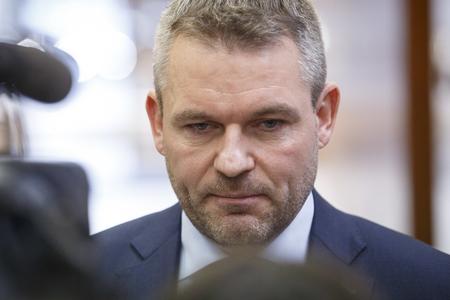
MORE STORIES FROM THE SLOVAK SPECTATOR WEBSITE
LAST WEEK: In Slovakia, disinformation channels are tools of media capture. Robert Fico and his government are living in a symbiosis with them.
WORK: Covid-19 continues to cast a shadow across the office market in Bratislava, despite the pandemic having officially ended almost two years ago.
PUBLIC TRANSPORT: Bratislava's Petržalka tram extension set to launch by end of May, triggering changes including line cancellations.
AUTOMOTIVE: Volkswagen chooses Portugal over Bratislava for its cheapest EV, sparking concerns over Slovakia's investment appeal.
FOOTBALL: Slovan Bratislava crowned champions after a rollercoaster 4-3 victory over Žilina, confirming their place at the top — but harder tests await in Europe.
MORE FOOTBALL: A narrow 1-0 win over Ružomberok secures Spartak Trnava's third cup triumph in four years and a path to Europe.
TRAVEL: A scenic, family-friendly hiking loop offers fresh views on one of central Slovakia's overlooked towns.
If you like what we are doing and want to support good journalism, buy our online subscription with no ads and a print copy of The Slovak Spectator sent to your home in Slovakia. Thank you.
FEATURE STORY
Forget Rose and Jack, this is the real love story
The Titanic was believed to be unsinkable. But in the early hours of 15 April 1912, the ship sank during its maiden voyage. Ever since, the tragedy has captivated the public, with most accounts told from the perspective of those on board, including arguably the most famous, yet fictional love story of Rose and Jack. However, the story can also be viewed from a different angle: from the deck of the Carpathia.
Among those who took part in the rescue efforts was Júlia Červenková, a young woman from Slovakia. She met her future husband on the Carpathia, and both were working on the ship at the time of the disaster. Her story has remained unknown—until now.
EVENT FOR THE NEXT FEW WEEKS
Dolce Vitaj
Dolce Vitaj, the Italian festival in Slovakia, returns for another edition, bringing a taste of Italian culture, art, and lifestyle to the heart of Europe. At the moment, visitors can explore an exhibition dedicated to the iconic Vespa scooters at Bratislava Castle—but don't delay, as it will soon come to a close. No need to worry, though—more events are just around the corner.
This Wednesday marks the opening of an exhibition inspired by the classic novel Invisible Cities by Italo Calvino, featuring illustrations by Daniela Olejníková created for the Slovak edition of the book. From next week, audiences can also look forward to regular screenings of films by director Ferzan Ozpetek.
You can find the full festival programme here.
IN OTHER NEWS
Slovak mountaineer Peter Hámor has achieved another first ascent. Alongside Nives Meroi and Roman Benet, he successfully scaled Kabru, a 7,412-metre-high Himalayan peak on the border of India and Nepal, via a new route on the western (Nepalese) side. The trio completed the climb in Alpine style on Sunday at around 17:00, following a two-week delay due to snowfall and strong winds. (TASR)
Citing "low quality in terms of presenters' preparedness," Prime Minister Robert Fico (Smer) said on Sunday that he is prepared to sign an agreement with all political party leaders to cancel Sunday political talk shows on Slovak televisions. Instead, he proposed that such programmes be aired throughout the week, allowing people in Slovakia to enjoy a day free from politics.(TASR)
The first case of African swine fever this year has been confirmed at a farm in the village of Dolné Semerovce, Nitra Region. The farm houses approximately 18,458 pigs for meat production, all of which will be culled. The cause of the infection is currently under investigation. To prevent the spread of the disease, a three-kilometre protection zone and a ten-kilometre surveillance zone have been established around the farm, affecting nearly 30 villages, alongside other preventative measures. The disease is incurable and has no vaccine, but it does not affect humans or other animal species. (TASR)
In response to Prime Minister Robert Fico's planned visit to Moscow for WWII Victory Day celebrations, the opposition Slovensko movement (formerly OĽaNO) has invited other opposition parties—Progressive Slovakia, SaS, KDH, and the non-parliamentary Demokrati—to join a joint visit to Kyiv, Ukraine, on May 9. Slovensko leader Igor Matovič called the Prime Minister's planned trip an act of treason and claimed it would bring international disgrace upon Slovakia. (TASR)
In 2024, Slovak car exports to the United States declined by 13 percent year-on-year, contributing to a stagnation in the country's overall automotive exports. The downturn was also linked to one domestic car manufacturer's transition to electromobility, which led to a temporary production halt. Overall car production in Slovakia also fell by 8 percent compared to the previous year. (SITA)
President Peter Pellegrini has not yet decided whether he will sign the amendment to the law on non-profit organisations but has confirmed he will do so within the legal deadline. The parliament approved the amendment in April. The bill has faced strong criticism from the general public, activists, and NGOs, who dubbed it the "Russian law" and described it as an attack on democracy. (TASR)
WEATHER FOR TUESDAY: Cloudy to overcast skies, showers and rain occasionally expected. Daily temperatures will rise to between 9 °C in the north and 18 °C in the south. (SHMÚ)
MAY 6 NAME DAY IN SLOVAKIA: Hermína
Thank you for subscribing and reading. It means a lot to us.
P.S. If you have suggestions on how our news overview can be improved, you can reach us at editorial@spectator.sk.
Follow The Slovak Spectator on Facebook, LinkedIn and Instagram(@slovakspectator).


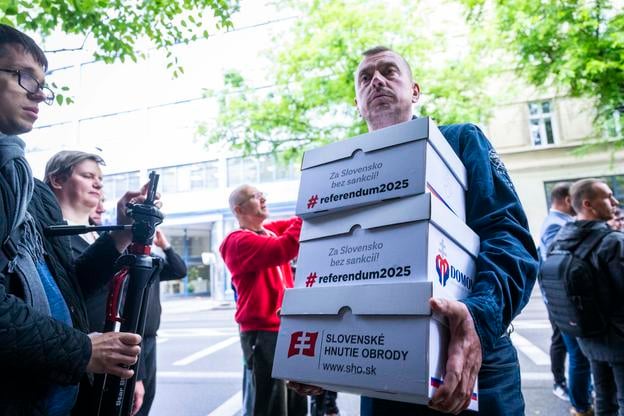 Members of the Slovenské Hnutie Obrody party submitting the petition to the Presidental Office on Monday, May 5. (source: TASR)
Members of the Slovenské Hnutie Obrody party submitting the petition to the Presidental Office on Monday, May 5. (source: TASR)
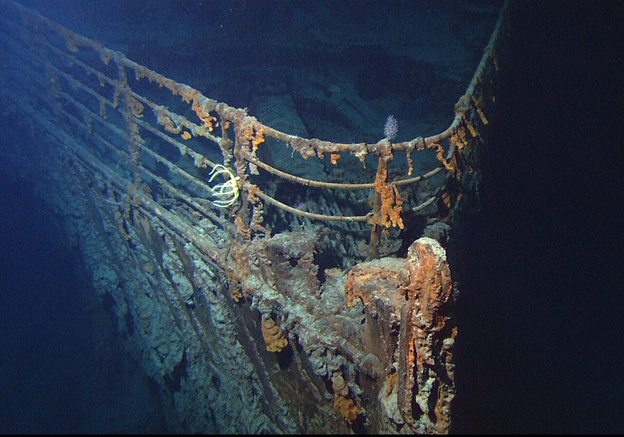 The wreck of the Titanic. (source: NOAA/Institute for Exploration/University of Rhode Island (NOAA/IFE/URI))
The wreck of the Titanic. (source: NOAA/Institute for Exploration/University of Rhode Island (NOAA/IFE/URI))
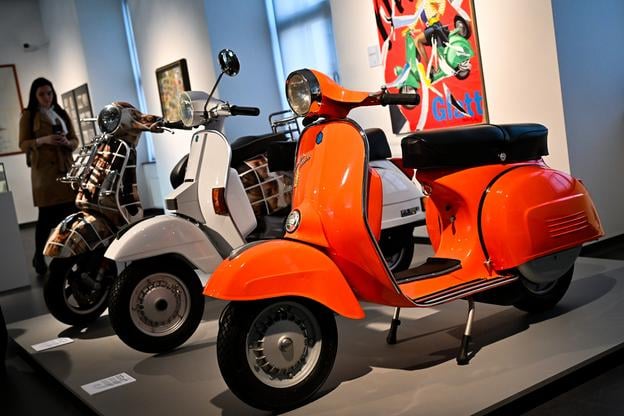 The Vespa scooters in Bratislava Castle. (source: TASR)
The Vespa scooters in Bratislava Castle. (source: TASR)
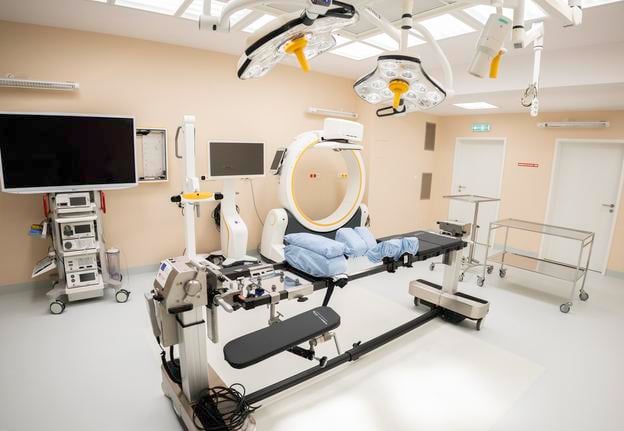 The Ružinov University Hospital in Bratislava opened new surgery rooms. (source: TASR)
The Ružinov University Hospital in Bratislava opened new surgery rooms. (source: TASR)
 The so-called Love Tree near the village of Jakubova Voľa in eastern Slovakia on April 29. The nickname of the tree comes from the heart-like shape of its canopy. (source: TASR)
The so-called Love Tree near the village of Jakubova Voľa in eastern Slovakia on April 29. The nickname of the tree comes from the heart-like shape of its canopy. (source: TASR)